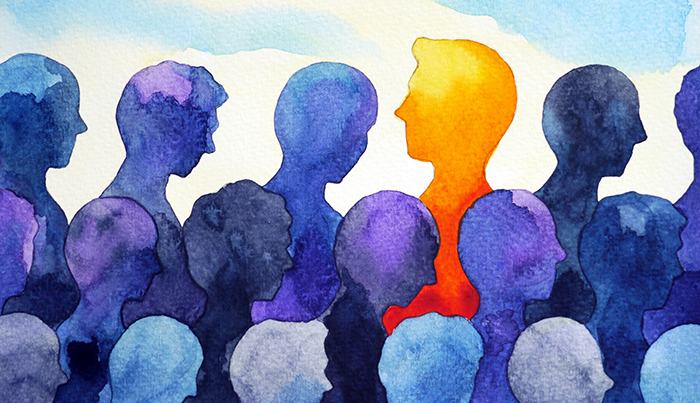What do you think of this article?
By Dr. David Woo - August 1, 2018

Every year, major depressive disorder affects 7.6% of the population over 12 years old in the United States, according to the Center for Disease control. (1) The World Health Organization reported that major depression is one of the leading causes of disability worldwide. (2) The majority of people who experience severe depressive symptoms have difficulty with activities in work, at home, or socially due to their symptoms.
Fortunately, depression is treatable. The most common treatment is a combination of psychotherapy and antidepressant medication. However, while there are a number of medications available for major depressive disorder, not all patients respond well to medication treatment. In fact, only about half of patients respond to the first antidepressant medication they are prescribed. (3,4)
What happens to the other half of patients? Most will end up trying other medications, or combinations of medications, prescribed by their physician to attempt to find relief from their depression. Around 20-40% of patients do not experience improvement in their symptoms with antidepressant medications, even when they try different options. (5) If the patient still is not finding relief from depression after trying several antidepressant prescriptions, then the diagnosis may be treatment resistant depression.
What is Treatment Resistant Depression?
Treatment resistant depression is diagnosed in patients who have tried two or more full courses of antidepressant medication treatment. A full course of treatment means that the medication was taken by the patient, as prescribed, for the full length of time needed to be effective (up to 14 weeks), at the full dosage known to be effective. If a patient has completed two full courses of treatment and still has symptoms of depression, they may then be diagnosed with treatment resistant depression. (6)
What makes a patient with treatment resistant depression a good candidate for TMS treatment?
Because 20-40% of patients with depression can fall into the category of treatment resistant depression, non-medication treatment options have been explored. Transcranial magnetic stimulation (TMS) is a treatment that has been shown to work for patients with treatment resistant depression. A 2012 study on TMS looked at patients who had already tried medication treatment with little to no results. The study revealed that of these patients, approximately 37% of people achieved remission with TMS treatment. (7)
Specifically, TMS may be the ideal treatment option in the following circumstances:
- Medication has failed to provide relief: The patient has tried various rounds of different medications and psychotherapy with no relief from his or her symptoms.
- Medication has caused unpleasant side effects: The patient has experienced side effects from antidepressant medications or wishes to avoid the side effects of medication (such as sexual dysfunction and weight gain).
- Medication cannot be taken during pregnancy: The patient is planning to become pregnant and may need to discontinue her antidepressant medication (depending on the medication) during pregnancy. The patient may therefore need a non-pharmacological treatment for depression.
In addition, a good candidate for TMS treatment does not have any history of seizures or seizure disorder, and does not have any kind of neural implant.
So, is TMS right for you?
Many factors figure into your treatment plan for depression. If you want to know if TMS is a good option for you, take our quiz or set up a consultation with Dr. Woo to find out more. You can also learn more about TMS therapy costs here.
References
- Pratt LA, Brody DJ. Depression in the U.S. Household Population, 2009-2012. Centers for Disease Control and Prevention. NCHS Data Brief No. 172. December 2014. Link. Accessed July 17, 2018.
- World Health Organization. The Global Burden of Disease 2004 Update. Geneva, Switzerland: WHO Press; 2008.
- Prudic, Haskett RF, Mulsant B, Malone KM, et al. Resistance to antidepressant medications and short-term clinical response to ECT. Am J Psychiatry. 1996;153(8):985-92. Link. Accessed July 17, 2018.
- Sackheim HA. The definition and meaning of treatment-resistant depression. J Clin Psychiatry. 2001;62 Suppl 16:10-7. Link. Accessed July 17, 2018.
- Kessler R et al. The epidemiology of major depressive disorder: results from the National Comorbidity Survey Replication (NCS-R). JAMA. 2003-289(23):3095-3105. Link. Accessed July 17, 2018.
- Al-Harbi KS. Treatment-resistant depression: therapeutic trends, challenges, and future directions. Patient preference and adherence. 2012;6:369-388. Link. Accessed July 17, 2018.
- Carpenter LL, Janicak PG, Aaronson ST, et al. Transcranial magnetic stimulation (TMS) for major depression: A multisite, naturalistic, observational study of acute treatment outcomes in clinical practice. Depress Anxiety. 2012 Jul;29(7):587-96. Link. Accessed July 17, 2018.
Dr. David Woo is the owner and head clinical psychiatrist at Madison Avenue TMS and Therapy in New York City. Dr. Woo has been seeing patients in private practice since 2002, always with the goals of combining evidence-based medicine with psychodynamic psychotherapy and collaborating with other mental health professionals to ensure the best possible outcomes for his patients. He has been certified to administer TMS at his practice since 2017. His greatest clinical interests include helping patients suffering from depression, anxiety, and obsessive compulsive disorder.
Follow Dr. Woo On









